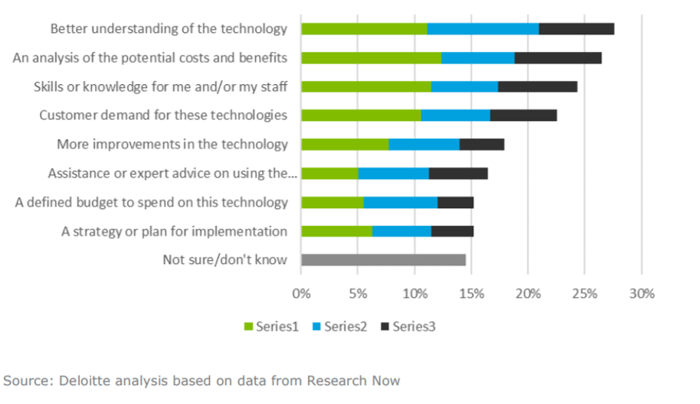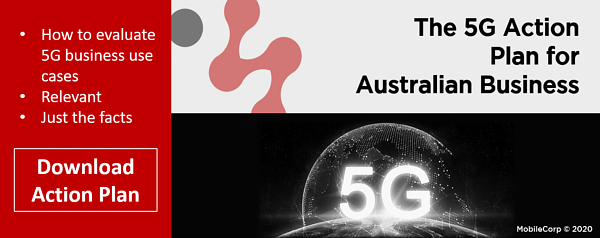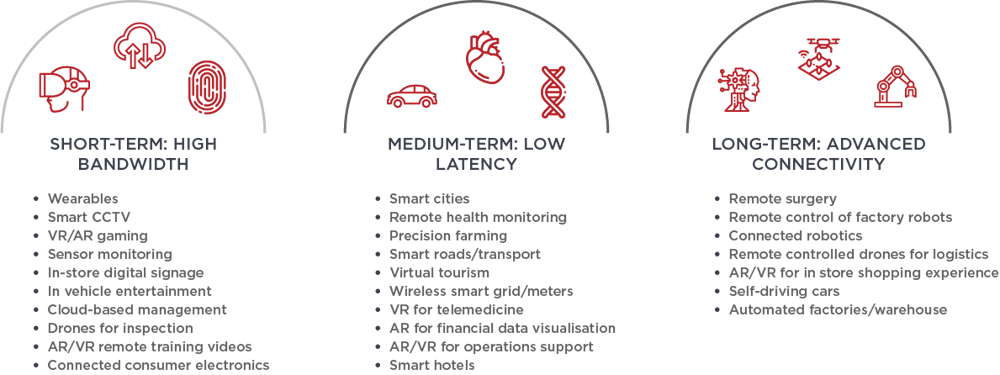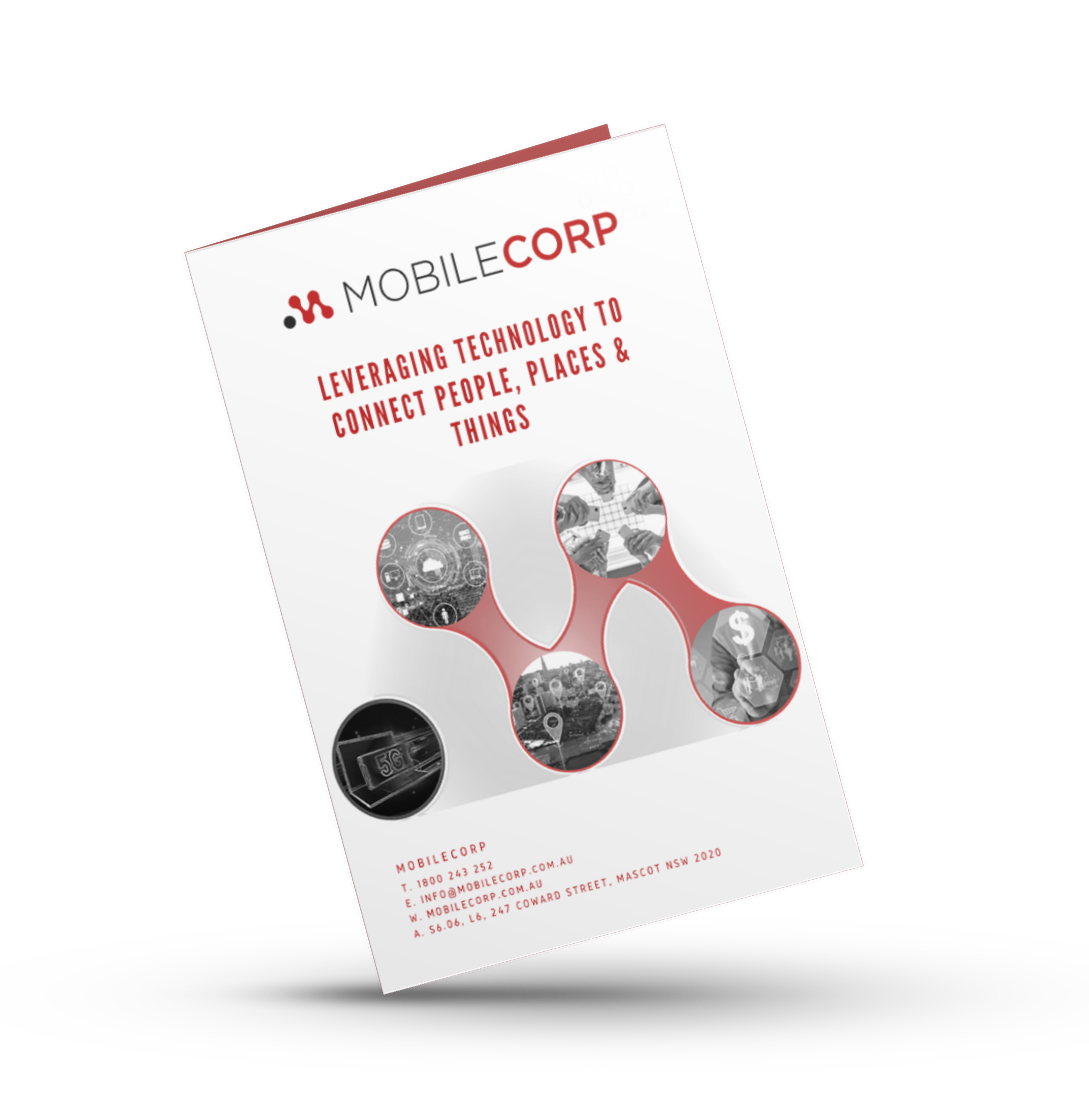The 5G network is ahead of schedule. 8 million Australians now have access. The first 5G iPhone is coming later this year. The biggest barrier to 5G in Australia has nothing to do with the technology.
The key barrier to 5G adoption by Australian business leaders, is the knowledge gap around what 5G can deliver to business.
This is freely admitted by business and IT leaders.
In a survey commissioned by Deloitte Australia, Australian business leaders ranked ‘better understanding of the technology’ as the key enabler for introducing 5G to their business. Specifically, it was felt that more knowledge around the potential costs and benefits was required.
And it seems this situation is not exclusive to Australia. In the UK, Barclays similarly found only 28 percent of businesses understand 5G or the practical business possibilities it could offer.

Understanding how to evaluate the potential of 5G
“There has been a lot of talk about the game-changing capabilities of 5G, but organisations are struggling with how best to harness the potential to create a real competitive advantage.”
MobileCorp managing director, Stephen Aravopoulos
How to translate the potential of 5G into real commercial opportunities, is the question for Australian organisations in 2020, says MobileCorp managing director, Stephen Aravopoulos.
In evaluating the potential of 5G, there are a number of foundational concepts to consider. These can help organisations to frame relevant opportunities.
- 5G is more than just an access technology. It should be seen as a transformation tool capable of supporting flexible implementation scenarios across licensed and unlicensed spectrum and across public and private networks.
- 5G is an enabling technology accelerating many other technologies and business models, helping them achieve their full potential and capturing brand new business opportunities.
- 5G is about extending the capabilities of macro-cells and small cells beyond connectivity, and transforming them into intelligent computing hubs capable of bringing smart services close to the end user.
- 5G networks are highly scalable and can solve various existing pain points across multiple industries, as well as address completely new use cases and applications otherwise not possible with existing networks.
- 5G is about being able to react to market demand in a timely fashion by enabling new services to be launched in a matter of days, not months or even years, as is the case with today’s existing networks.
To learn more download our 5G Action Plan for Australian Business
Understand that 5G is all about business
5G is all about enterprise business. The consumer case for 5G is a little underwhelming, says Aravopoulos. Beyond more speed and streaming video or gaming, there is not much of a consumer case being made for 5G. As a result, consumers have not shown much appetite for paying extra for 5G-compatible phones or 5G inclusive plans.
As well as the minimal perceived benefits, there is also the cost and scarcity of 5G mobile phones with only Android devices available so far. Until Apple bring out a 5G-compatible smartphone, expected later in 2020, the Australian consumer adoption of 5G will lag.
5G has far more significant potential benefit for business, than it does for consumers.
"There's nothing new in 5G for consumers. It's just faster speeds, perhaps. Carriers must consider enterprise business models carefully. What 4G did for consumers—introduced all of these social media applications, remote working capabilities... 5G can do the same for enterprises.”
First 5G use cases focus on bandwidth, low latency
First-generation 5G networks are initially focused on extending business continuity to existing LTE networks, with the main outcomes being faster speeds, higher bandwidth and low latency. This, therefore, is where the first business use cases will also begin.
First, we will see high bandwidth use cases, followed by low latency and then data-driven intelligent connectivity solutions.
The first technologies to be enabled by 5G are predicted to be
- Internet of Things
- Video
- Gaming
- Location Tracking
- Data Analytics
- Mobile Cloud / Edge Computing
Telstra is leading the way in Australia
Telstra is among the first carriers globally to complete a Standalone 5G network. With increased investment during the Covid-19 lockdown, Telstra is now months ahead of schedule for its 5G network rollout. 8 million Australians in 47 cities are now able to connect to the 5G network. The carrier has also released its first 5G mobile broadband device.
Telstra group executive of product and innovation, Christian von Reventlow, has predicted 5G will inspire “unforeseen innovation”.
"So, like with 3G, the iPhone then appeared. And nobody had predicted the iPhone when they rolled out the 3G network. They probably predicted other uses.
"When 4G came, I don't think anyone had predicted that YouTube and Netflix would dominate the world.
"(With 5G...) I think there will be new things appearing which we don't expect today, beyond what we are talking about today."
Content is an extract from the eBook: A 5G Action Plan for Australian business

About MobileCorp
MobileCorp is an Australian communications technology company providing Managed Mobility Services including IOT Management, Mobile Device Management; as well as Complex Data and IP Networks, and Unified Communication solutions. We have a proven track record with Australian enterprise and business. We are also a Telstra Platinum Partner and have been a Telstra partner since 1988 (before Telstra was even called Telstra). Read Our History
5G Michelle Lewis 05 Jun 2020
Related Posts
Popular Tags
- Mobility (80)
- Mobile Devices (79)
- Telstra (65)
- 5G (60)
- MobileCorp Managed Services (55)
- Mobile Network (34)
- Networks (34)
- Cradlepoint (31)
- Apple (29)
- MobileCorp (29)
- iPhone (25)
- Remote Working (23)
- Covid-19 (16)
- Network (16)
- Mobile Security (15)
- Wireless WAN (15)
- Cyber Security (14)
- UEM (14)
- MDM (11)
- Mobile Expense Management (10)
- Mobile Device Management (9)
- TEMs (9)
- Mobile Device Lifecycle (8)
- Cloud (7)
- Unified Comms (7)
- Unified Communications (7)
- Wandera (7)
- Android (6)
- Sustainability (6)
- Data Networks (5)
- Network Security (5)
- Samsung (5)
- Security (5)
- Digital Experience (4)
- IOT (4)
- Microsoft Intune (4)
- IT Services (3)
- Microsoft (3)
- Data (2)
- Government (2)
- Microsoft 365 & Teams (2)
- Retail (2)
- nbn (2)
- webinar (2)
- Blog (1)
- EMM (1)
- Emerging Technologies (1)
- Hosted Telephony (1)
- Managed Desktops (1)
- SD-WAN (1)
- Starlink (1)
- Telstra Services (1)
- video (1)











